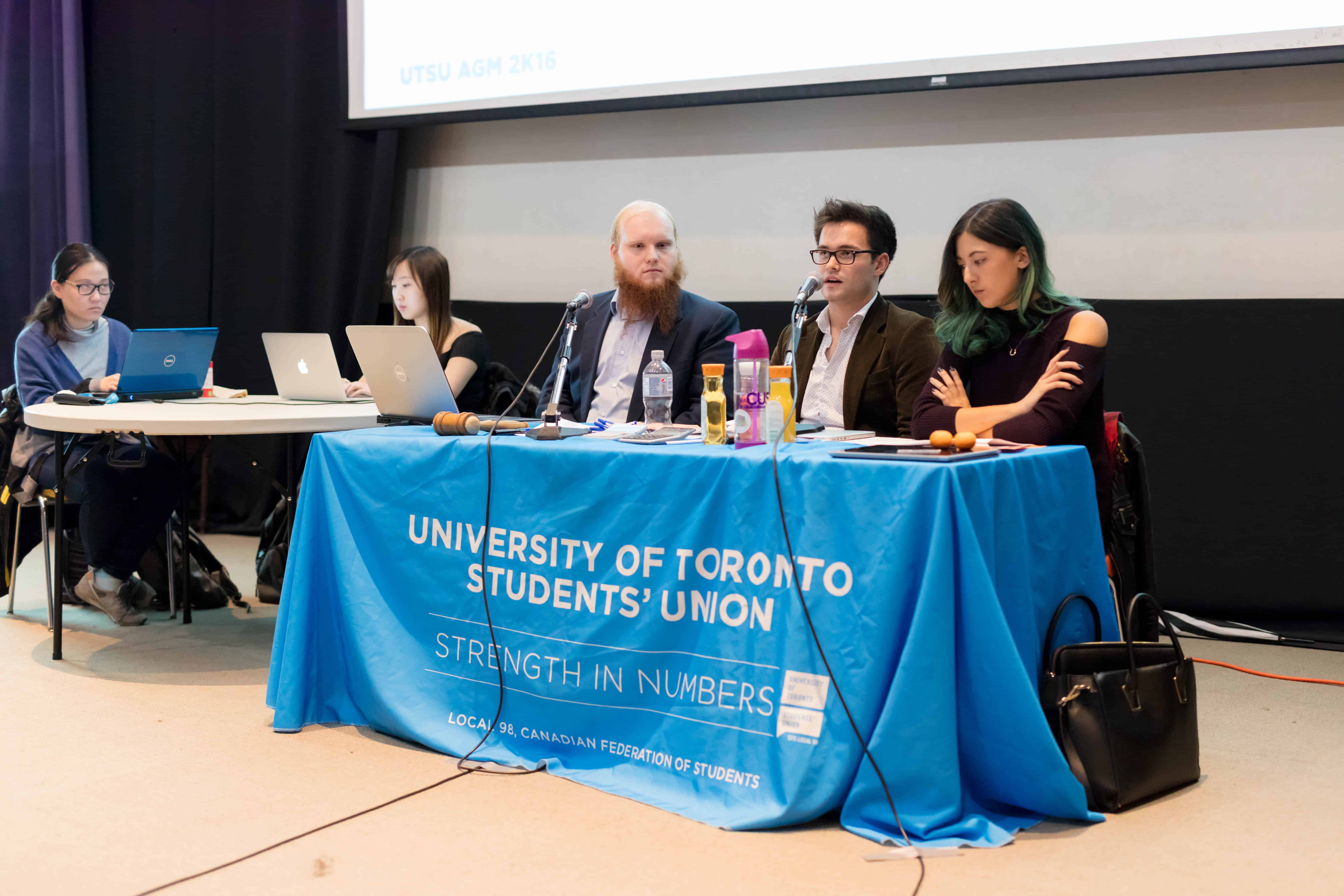As the union’s Vice-President Professional Faculties Ryan Gomes put it, Thursday’s University of Toronto Students’ Union (UTSU) Annual General Meeting (AGM) was one of the most “civil” in a long time.
To the noted surprise of the executives, the chair, and the members alike, the meeting was remarkable precisely for its lack of controversy, unlike the AGMs of previous years. It was called to order at 6:45 p.m. and adjourned at 8:35 p.m. Past meetings have been marked by disruptions, long delays, and divisive motions.
Following introductory remarks on procedure and equity, the meeting began with a 25-minute presidential address and question period with UTSU President Jasmine Wong Denike.
Denike outlined various UTSU initiatives and campaigns. She argued that the UTSU has been responsible with their funds and stressed the importance of holding the union accountable.
One question for Denike came from a UTM student, who asked the union President about the UTSU’s upcoming anti-Blackness town hall and their efforts to reduce anti-Blackness on campus. Denike replied that that the UTSU is “attempting to work with Black groups on campus in a much more constructive way.”
There were also three motions on the agenda, one of which was an omnibus motion to apply all of the bylaw amendments made by the board. All of the motions carried.
University College Literary and Athletic Society Vice-President Daman Singh moved an amendment to the bylaws 6.2 concerning the Elections and Referenda Committee’s ability to call multiple ratification meetings. This sparked debate over the democratic process of the UTSU and clarification on the proposed appellate board’s purpose as part of the bylaws.
Singh spoke to The Varsity following the AGM, bringing up last May’s contentious annual ratification meeting.
“In the scenario that we get to May, and the election is over and students came out and voted down the results, in the proposed bylaws the election and referenda committee would have had the authority to re-host this meeting, and re-host it with the exact same motion that had failed,” he said. “I thought that this was fundamentally undemocratic.”
The bylaw amendments also establish an Appellate Board, which would hear any complaints a student would have about the election beyond the Elections and Referenda Committee.
According to the text of the bylaw, the Appellate Board “shall be limited to the hearing of appeals and disciplinary decisions form the Grievance Officer the Elections and Referenda Committee, and the Executive Review Committee,” and that all decisions made by the board are binding on the UTSU.
The other two motions concerned the budgeting process; UTSU Engineering Director Andrew Sweeny’s motion makes the UTSU earmark at least 25 per cent of its gross revenue to clubs, events, and services while VUSAC Vice-President Stephen Warner brought a non-binding motion to have the operating budget specify the amount that the union distributes to each of its levy groups, which include LGBTOUT, BikeChain, Downtown Legal Services, and others.
Giving The Varsity his overall thoughts on the night, Vice-President Internal and Services Matthias Memmel said he’s “pleased that we had members show up. I’m pleased that everyone was civil — we’ve not always had meetings where they’ve gone as smoothly as this. But, you know, people raised concerns that they felt strongly about in the room, and we were able to answer them, I think, to people’s satisfaction.”


